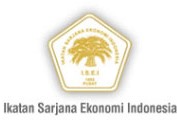Knowledge of Fraud and Taxpayer Compliance
(1) Accounting Study Program, Islamic University of Indonesia
(2) Accounting Study Program, Islamic University of Indonesia
Abstract
Keywords
Full Text:
PDFReferences
Adesina, Olugoke Oladipupo and Uyioghosa, Obazee (2016). Tax Knowledge, Penalties and Tax Compliance in Small and Medium Scale Enterprises in Nigeria. iBusiness, 2016, 8, 1-9.
Ahmad, Nik Nazli Nik dan Maliah Sulaiman (2004) Environment disclosure in Malaysia annual reports: A legitimacy theory perspective, International Journal of Commerce and Management.Vol. 14 Issue: 1, pp.44-58,
Alm, James.,Todd Cherry, Michael Jones, dan Michael McKee (2011). Taxpayer Information Assistance Service and Tax Compliance Behavior. Tulane Economics Working Paper Series. April
Andreoni, James., Brian Erard and Jonathan Feinstein (1998). Tax Compliance. Journal of Economic Literature, Vol. 36, Issue 2, pp. 818-860
Anggraini, Desy. 2011. Faktor-Faktor yang Mempengaruhi Kemauan Wajib Pajak dalam Penyampaian Surat Pemberitahuan (SPT) Tahunan Wajib Pajak Badan (Studi Kasus Pada KPP Pratama Kebayoran Lama). Skripsi Program Studi Akuntansi/ Perpajakan Fakultas Ekonomi dan Bisnis Universitas Islam Negeri (UIN) Syarif Hidayatullah Jakarta.
Burton, Richard. 2002. Penerapan Sanksi Pidana dan Sanksi Administrasi dalam Hukum Pajak. Jurnal Perpajakan Indonesia Vol. 1. No. 6.
Carolina, Veronica. 2009. Pengetahuan Pajak. Jakarta: Salemba Empat.
Chariri, Anis. 2011. “Teori Legitimasi dan Pengungkapan Sosial Lingkungan.” SMART Community : h..n.p, http://staff.undip.ac.id/akuntansi/anis/.
Daroyani, I. V. 2010. Analisis Faktor-faktor yang Mempengeruhi Tingkat Kepatuhan Wajib Pajak Badan dalam Membayar Pajak Penghasilan (Metode Survey pada Kantor Pelayanan Pajak Pratama Batu). Tesis (Tidak Diterbitkan). Malang: Universitas Muhammadiyah.
Deegan, C. (2004). Environmental Disclosures and Share Prices – A Discussion about the Efforts to Study this Relationship‟, Accounting Forum, 28, pp. 87-97.
Dominguez, America Alvarez. 2011. “The Impact Of Human Resource Accounting On Corporate Image”. Jurnal of Human Resource Costing and Accounting, Vol. 15 Iss: 4 pp. 279 – 298
Donovan, Gary, & Gibson, K. (2000). Environmental Disclosure in the Corporate Annual Report: A Longitudinal Australian Study. 6th Int. EAC, 2, 36–51.
Ellitan, Lena & Anatan, Lina. 2007. Sistem Informasi Manajemen. Jakarta: PT. Alfabet.
Faisal, Gatot S.M. 2009. How to be A Smarter Taxpayer: Bagaimana menjadi Wajib Pajak. Jakarta: Grasindo.
Ghozali, Imam. 2008. Structural Equation Modeling metode alternatif dengan Partial Least Square, edisi 2. Semarang: Badan Penerbit Universitas Diponegoro
Gray, Owen, D., & Adam, C. (1996). Accounting and Accountability. Prentice Hall Europe.
Hardiningsih, Pancawati dan Yuliawati, Nila. 2011. Faktor-Faktor yang Mempengaruhi Kemauan Membayar Pajak. Jurnal Dinamika Keuangan dan Perbankan. Vol.3 No.1 (126-142).
Irawan, Candra. 2013. Pengaruh Pengetahuan Wajib Pajak Tentang Peraturan Perpajakan, Penyelewengan Pajak dan Persepsi Wajib Pajak atas Kinerja Pelayanan Perpajakan Terhadap Motivasi Wajib Pajak dalam Memenuhi Kewajiban Perpajakan. Jurnal Akuntansi Universitas Riau.
Istanto, Fery. 2010. Analisis Pengaruh Pengetahuan Tentang Pajak, Kualitas Pelayanan Pajak, Ketegasan Sanksi Perpajakan dan Tingkat Pendidikan Terhadap Motivasi Wajib Pajak dalam Membayar Pajak. Penelitian Program Studi Akuntansi/ Perpajakan Fakultas Ekonomi dan Bisnis Universitas Islam Negeri (UIN) Syarif Hidayatullah Jakarta.
Kahono, Sulud. 2003. Pengaruh Sikap Wajib Pajak Terhadap Kepatuhan Wajib Pajak Dalam Pembayaran Pajak Bumi dan Bangunan Studi Empiris di Wilayah KP PBB Semarang. Tesis Program Pasca Sarjana Magister Sains Akuntansi Universitas Diponegoro.
Lindblom, C.K. (1994), “The implications of organizational legitimacy for corporate social performance and disclosure,” Paper presented at the Critical Perspectives on Accounting Conference, New York.
Mahardika, I Gusti Ngurah Putra (2015). Pengaruh Kualitas Pelayanan dan Sikap Wajib Pajak terhadap Kepatuhan Pelaporan Wajib Pajak Orang Pribadi di KPP Pratama Singaraja. Jurnal Jurusan Pendidikan Ekonomi (JJPE).Volume: 5 Nomor: 1 Tahun: 2015
Mangoting, Yenni. 1999.Tax Planning: Sebuah Pengantar sebagai Alternatif Meminimalkan Pajak. Jurnal Akuntansi dan Keuangan, Vol. 1, No. 1: 43-5.
Muammarsyah, Nanda. 2011. Pengaruh Peran Account Representatif, Pemahaman Prosedur Perpajakan Wajib Pajak dan Kualitas Pelayanan Tempat Pelayanan Terpadu di Kantor Pajak Terhadap Kepatuhan Wajib Pajak dalam Memenuhi Kewajiban Perpajakannya Skripsi. Fakultas Ekonomi dan Bisnis Universitas Islam Negeri (UIN) Syarif Hidayatullah Jakarta.
Musimenta, Doreeen, Stephen Korutaro, Moses Muhwezi, Brenda Akankunda and Irene Nalukenge (2017). Tax compliance of small and medium enterprises: a developing country perspective. Journal of Financial Regulation and Compliance. Vol. 25 Issue: 2, pp.149-175
Natrah Saad (2014). Tax Knowledge, Tax Complexity and Tax Compliance: Taxpayers’ View. Procedia - Social and Behavioral Sciences 109 ( 2014 ) 1069 – 1075
Nugroho, Agus. 2006. Pengaruh Sikap Wajib Pajak pada Pelaksanaan Sanksi Denda, Pelayanan Fiskus dan Kesadaran Perpajakan terhadap Kepatuhan Wajib Pajak (Studi Empiris terhadap Wajib Pajak Orang Pribadi di Kota Semarang). Tesis Magister Akuntansi Program Pascasarjana Universitas Diponegoro.
Nugroho, Rahman Adi. 2012. Faktor-Faktor yang Mempengaruhi Kemauan untuk Membayar Pajak dengan Variabel Intervening. Skripsi Universitas Diponegoro Semarang.
Octaviana, N. E., & Rohman, A. (2014). Pengaruh Agresivitas Pajak Terhadap Corporate Social Responsibility : Untuk Menguji Teori Legistimasi. Diponegoro Journal of Accounting, 03(02), 1–12.
Prabawa, Made Adi Mertha. 2012. Pengaruh Kualitas Pelayanan Dan Sikap Wajib Pajak Terhadap Kepatuhan Pelaporan Wajib Pajak Orang Pribadi di Kantor Pelayanan Pajak Pratama Bandung Utara. ISSN No. 1978-3787 Volume 6, No 2.
Prasetyo, et al. (2003). Fraud Prevention and Investigation. Jakarta: Peak Indonesia.
Purwoko, Aditya Dwi. 2008. Pengaruh Pelaksanaan Self Assessment System, Kualitas Pelayanan KPP, dan Tingkat Pendidikan Terhadap Motivasi Wajib Pajak Memenuhi Kewajiban Pajak. Skripsi Strata-1. Jakarta: Fakultas Ekonomi dan Bisnis UIN Syarif Hidayatullah.
Rahajeng, Rahmi Galuh. 2010. “Faktor-Faktor Yang Mempengaruhi Pengungkapan Sosial (Social Disclosure) Dalam Laporan Tahunan Perusahaan (Studi Empiris Pada Perusahaan Manufaktur Di Bursa Efek Indonesia)”. Skripsi: Fakultas Ekonomi Universitas Diponegoro Semarang.
Rahayu, Siti Kurnia. 2010. Perpajakan Indonesia Konsep & Aspek Formal Edisi Pertama. Yogyakarta: Graha Ilmu.
Raihana, Mohdalia, Khadijah Isab & Salwa Hana Yusoff (2014). The impact of threat of punishment on tax compliance and noncompliance attitudes in Malaysia. Procedia - Social and Behavioral Sciences 164 ( 2014 ) 291 – 297
Rengki & Herawati & Puttri, Daniati. 2014. Faktor-Faktor yang Mempengaruhi Motivasi Wajib Pajak dalam Memenuhi Kewajiban Perpajakan. Jurnal Akuntansi, Vol 4, No 1.
Resmi, Siti. 2008. Perpajakan Teori dan Kasus Edisi 4. Jakarta: Salemba Empat
¬Resmi, Siti. 2009. Perpajakan: Teori dan Kasus Buku 1 Edisi 5. Jakarta: Salemba Empat.
Risnawati. 2009. Pengaruh Kualitas Pelayanan Pajak Terhadap Kepatuhan Wajib Pajak Penghasilan Orang Pribadi. Jurnal Ekonomi dan Informatika.
Siahaan, Marihot Pahala. 2010. Hukum Pajak Elementer. Yogyakarta: Graha Ilmu.
Simanjuntak, Timbul Hamonangan. 2009. Kepatuhan Pajak (Tax Compliance) dan Bagi Hasil Pajak dalam Perekonomian di Jawa Timur. Jurnal Ekonomi & Studi Pembangunan, Vol.1, No.2.
Suhendah, Rousilta. 2012. “Pengaruh Intellectual Capital terhadap Profitabilitas, Produktivitas, dan Nilai Pasar pada Perusahaan yang Go Public di Indonesia Tahun 2005-2007”. SNA XV. Banjarmasin.
Suryadi. 2006. Model Hubungan Kausal Kesadaran, Pelayanan, Kepatuhan Wajib Pajak dan Pengaruhnya Terhadap Kinerja Penerimaan Pajak. Jurnal Keuangan Publik, Vol.4, No.1, Hal 105-121.
Taslim. 2007. Pengetahuan Pajak. Jakarta: Genesis.
Torgler, Benno (2008). What Do We Know About Tax Fraud?: an Overview of Recent Developments. Social Research: An International Quarterly, Volume 74, Number 4, Winter 2008, pp. 1239-1270
Wahyudi, Isa. 2010. Analisis Faktor-Faktor yang Mempengaruhi Korupsi Anggaran Pendapatan Belanja Daerah (APBD) di Malang Raya. Penelitian Universitas Muhammadiyah Gresik.
Widodo, Nova Maulud. “Pengaruh Karakteristik Perusahaan Terhadap Pengungkapan Akuntansi Sumber Daya Manusia”. SNA 17 Lombok
Witono, Banu. 2008. Peranan Pengetahuan Pajak Pada kepatuhan Wajib Pajak. Jurnal Ilmu Administrasi, Vol.7, No.2.
Yusof, Nor Azrina Mohd dan Lai, Ming Ling (2014). An integrative model in predicting corporate tax fraud. Journal of Financial Crime. Vol. 21 Iss 4 pp. 424 – 432.
Refbacks
- There are currently no refbacks.

This work is licensed under a Creative Commons Attribution 4.0 International License.






